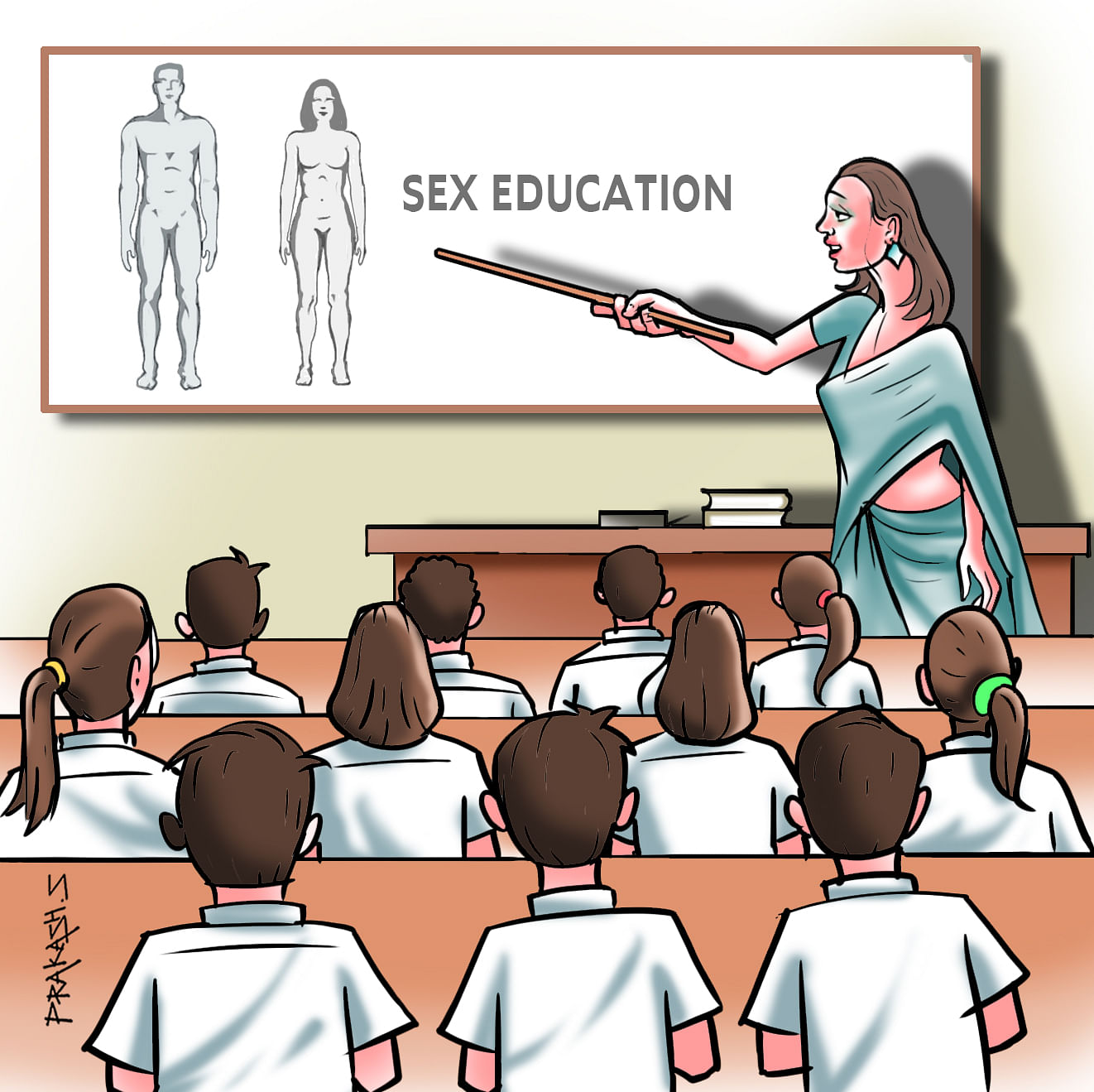
Off late, many incidences of teenage boys sexually assaulting girls after watching pornographic material are on the rise. Given that teenage is a crucial period in one’s life, it is obvious that there is an urge to explore and learn new things, including sexuality.
However, sex and related topics have always been taboo in the Indian society. Experts say that this has to be changed for a future generation which is comfortable about and aware of their own bodies and crucial topics.
Syed Shams Tabraiz, biology teacher, KVV High School, says, “Sexuality is an important topic of discussion and it is important we talk to children about it openly. It is a natural phenomenon and it should be treated that way. As a teacher, it should also be our duty to create this mindset.”
Remember those school days, when the chapter on reproduction was the only lesson that took the least number of days to complete? Syed has the answer for that.
He says, “Making the atmosphere of the classroom tensed and awkward doesn’t help in clearing genuine doubts of the students. Knowing and understanding human reproduction or sex education is not a sin. It is all about knowing ourselves and acknowledging the physiological functions of our body. Having this knowledge would help us guide people suffering from physical and mental harassment.”
So, is educating children about the act of sex enough? Sangeeta Saksena, co-founder, Enfold India, an organisation that works towards preventing child sexual abuse, believes it is not.
She says, “Sex education is very mechanical in approach and never takes into consideration one’s emotions, feelings and values. Aspects like being responsible, considerate and making sure it is not causing any harm to others, are important. To achieve that we need something more comprehensive and that is sexuality education.”
She adds, “Because today, the problem is not lack of knowledge but how one utilises this information.”
She says that more focus should be given to subjects like how to manage the feelings that one has or the sheer necessity to balance the needs of one person with the needs of the other.
“It is important to talk to these young minds about the changes their body will experience and at the same time, also teach them not to hurt others, the various social and emotional consequences.”
“Today, youngsters are getting access to pornography without the knowledge of how to navigate the internet. It is more dangerous than the physical world.”
Sangeeta believes that sexuality education is the first and foremost responsibility of parents. And it begins right from when a child is three or four years of age.
“When we shame a child for running around naked, the child instantly associates sexuality and body with shame."
Where does one stop?
Sangeeta says, “You never really stop. It is always age-appropriate. This means if a three-year-old is asking why a mother’s stomach is bloated, parents should be truthful and say that there is a baby inside it. However, if a 14-year-old asks the same question, one needs to go a little deeper and explain the whole thing.
- Use culturally appropriate words and words we are comfortable with but are unambiguous.
Apps that can make your job easy
Surakshith app - Directed towards children between 6 and 18 years of age and teaching them personal safety rules in the form of illustrations and stories. The app helps children learn No - Go - Tell, and understand that the responsibility of abusive actions lies solely with the perpetrator.
Bal Suraksha app - Provides essential information about the prevention and management of CSA to children and adult stakeholders, like parents, schools, doctors, etc. The app also helps stakeholders learn how to interact with perpetrators of abuse, and the children who have faced abuse. Emergency numbers and support structures are also available.